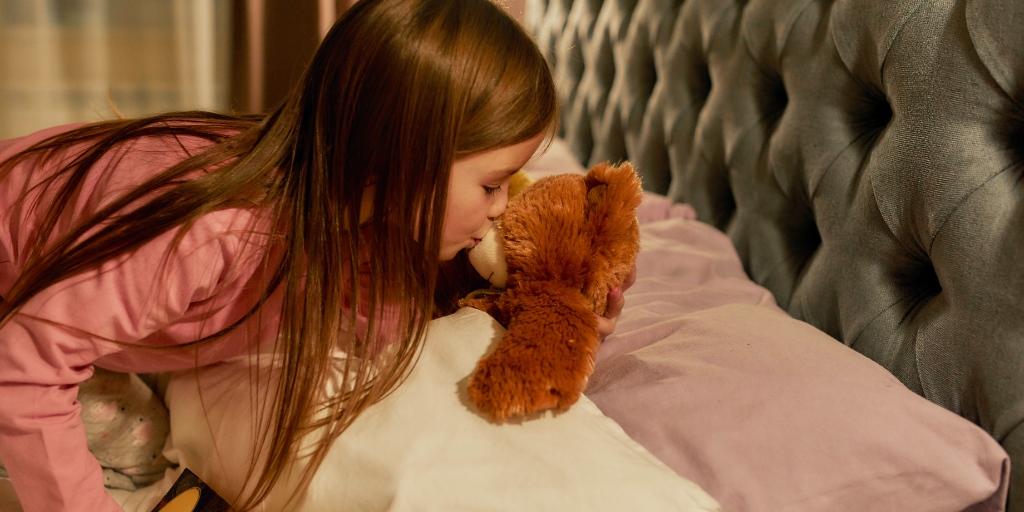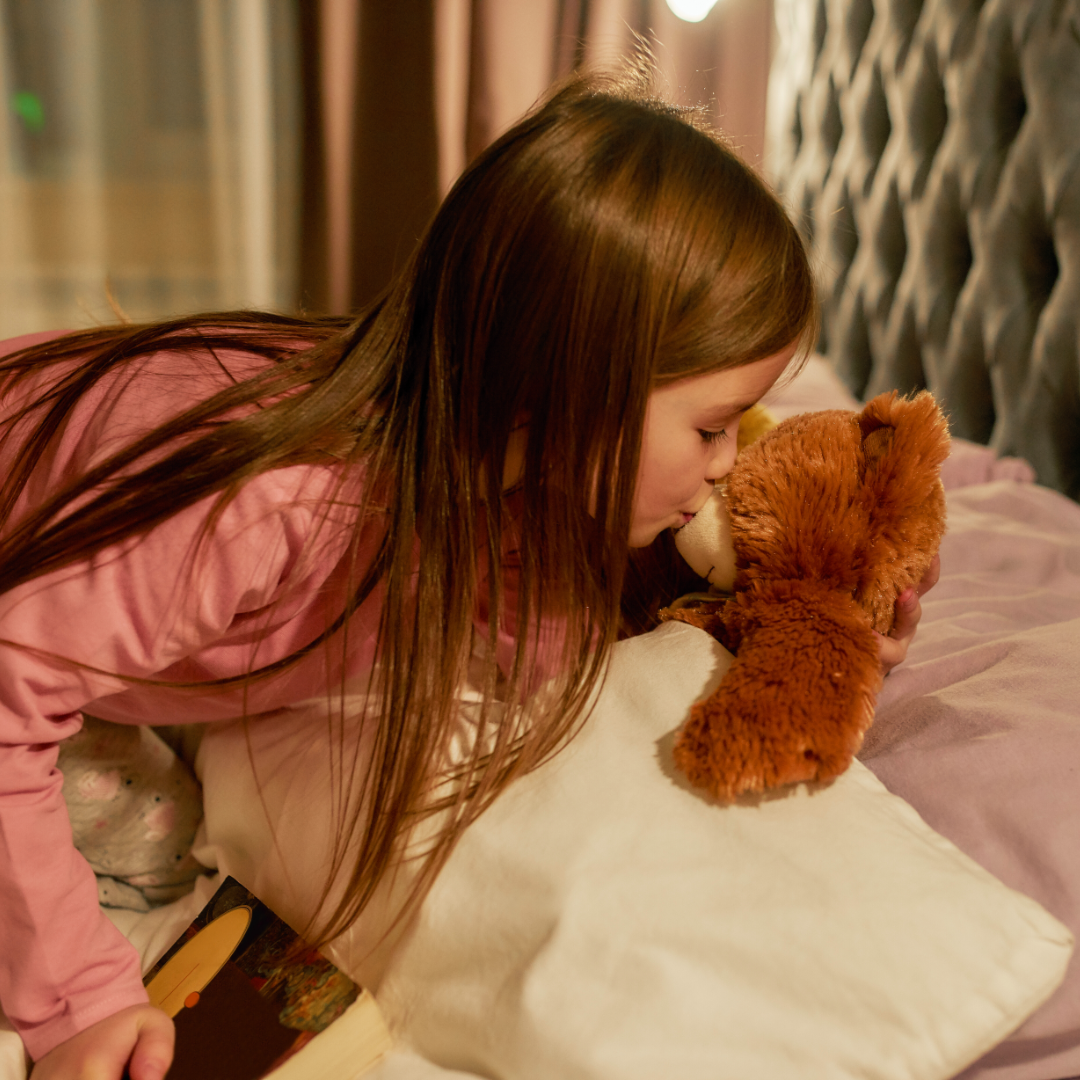
As Kathryn Pasker Ineck sends her eldest son off to college, she ponders the seemingly insignificant daily actions that become endearing habits.
I’ve never seen The Waltons, but my parents often quote it, saying, “Goodnight, John-Boy.” I suspect that the constant refrain I hear a couple of dozen times at night in our house functions in the same way: “Good night. I love you. Sleep good.”
I first noticed it last year. Daisy repeats it to each of her brothers and to Jim and to me at least thrice as she goes about her nighttime business. Then, I noticed that it’s not just her: all of her brothers wish everyone else a good night in the same way. Except Rooster, who says, “Sleep graciously,” instead of “Sleep good.” (Grammar is important, after all.)
I was becoming a little exasperated because it seems like such a mouthful—until I heard myself say it to them. With a little jolt, I realized that I am the one who started it to begin with! It’s funny when you see how your actions and words have affected your kids.
It’s often the irritating habits that we dislike in ourselves that we are most aware that our kids mimic. When Rooster was a toddler, he was constantly “all up in everyone’s grill.” Rather than constantly telling him no, I took to imitating an Adam Sandler-Chris Farley skit and would drop my voice and laugh, saying, “Back off!” He had a scratchy, gruff little voice, and listening to him repeat “back off” was hilarious … but hearing him later repeat it to his siblings or little friends without prompting was maybe a little alarming.

Luckily, our more positive habits are also repeated by our kids. They observe us at our weakest moments and see the strength we are unaware of teaching. They see us reach out in prayer to God, and reach out for the support of our family members, friends, and community. The best example of this repetition of positive habits is clearly demonstrated in the Bible. Of course.
Jesus lived through the entire range of human emotion and experience. He experienced human birth. He experienced living in exile as a refugee on a different continent than His extended family. He experienced returning to His homeland to grow into an adult. He mourned the death of His beloved foster father. He mourned the death of other family members and close friends, like Lazarus. He participated in the celebration of bar mitzvahs and weddings. Of feasts like Hannukah, Rosh Hoshana, Yom Kippur. He felt the piercing loneliness of being “other,” of being ridiculed, and of being totally abandoned by His friends. He endured unspeakable torture and was put to death. And through all this messy, beautiful, painful, glorious life? He prayed. He prayed and prayed and prayed.
In Compendium: Catechism of the Catholic Church, we read:
The Gospel often shows Jesus at prayer. We see him draw apart to pray in solitude, even at night. He prays before the decisive moments of his mission or that of his apostles. In fact, all his life is a prayer because he is in a constant communion of love with the Father. (542)
We know that the ancient Jewish people prayed at least three times each day: morning, noon, and night. Jesus’s life would have had the same rhythm. Many Catholic families continue this tradition by praying a morning offering, the Angelus at noon, and an examination of conscience at night.
The Catechism of the Catholic Church points out,
The Son of God who became Son of the Virgin also learned to pray according to his human heart. He learns the formulas of prayer from his mother, who kept in her heart and meditated upon all the “great things” done by the Almighty. He learns to pray in the words and rhythms of the prayer of his people, in the synagogue at Nazareth and the Temple at Jerusalem. (2599)
It is interesting to note the ways in which Jesus prayed: He often recited memorized verses from the Old Testament, especially the Psalms from memory, which allowed His fellow Hebrews to join Him in prayer. He prayed extemporaneously, which allowed Him to express His deep pain to the Father, as in the Garden of Gethsemane. He prayed in the internal quiet of His heart, as when we went into the mountains alone to pray. He prayed for the soul of His friend Lazarus who was deceased. He prayed for the forgiveness of those who had wronged Him: “Father, forgive them. They know not what they do” (Luke 23).
Through Jesus’s example, we learn a host of prayer habits that are open to us. Whether prayer is memorized, extemporaneous, internal, for the dead, or for those who have hurt us, He leads the way and offers us a habit of prayer applicable to all life’s stages.
In my little corner of the world, this life-chapter’s repeated “Good night. I love you. Sleep good,” is becoming bittersweet. Digit will be flying the coop this month and I am becoming painfully aware that our nights under the same roof are numbered. Of course, he will come home for school breaks and for summer vacation (at least in the beginning), but these days of raising four kids are dwindling.
Jim and I are trying to take it all in, to memorize this life. The arguments. The cooperation. The debris. The laughter. All too soon, our house will be quiet and will remain tidy—theoretically. In the meantime, we pray that we are preparing them well and remember that these teen years are fleeting. We hope.

Copyright 2022 Kathryn Pasker Ineck
Images: Canva
About the Author

Kathryn Pasker Ineck
Married for more than two decades to her best friend, and mom of four teens, Kathryn finds that life is never boring. She pursues the heart of God--led by His gentle Mother--and relies on the Divine Mercy Chaplet, a desire for chocolate, and an insatiable thirst for reading into the wee hours of the morning. She writes to maintain her sanity at Kathryn Pasker Ineck.


.png?width=1806&height=731&name=CatholicMom_hcfm_logo1_pos_871c_2728c%20(002).png)
Comments